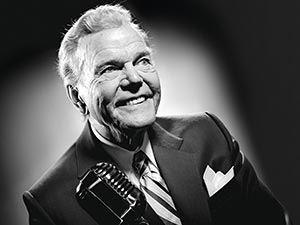 My friend Rick Brookhiser, who was born in upstate New York, recalled today that “I first heard Paul Harvey when my family drove cross country to California, c. 1960, in our black Comet. When the highways straightened out to long lines, and every intersection was a right angle, he took over the air waves.”
My friend Rick Brookhiser, who was born in upstate New York, recalled today that “I first heard Paul Harvey when my family drove cross country to California, c. 1960, in our black Comet. When the highways straightened out to long lines, and every intersection was a right angle, he took over the air waves.”
I was born in southeast Missouri, the land of right angles, and I didn’t have to drive anywhere to hear Paul Harvey News and Comment. I heard it every weekday morning on the kitchen radio as I wolfed down breakfast and prepared to go to school. It was my five-minute morning paper–the Daily Smalltown Standard came out in the afternoon–though even then I sensed that Harvey’s program was a lot more like Reader’s Digest than The Wall Street Journal. In fact Harvey was more quaint than I knew, for he was the last survivor of old-time radio, a voice from and of the past. The long, stagy pauses, the cornpone humor, the I-use-it-and-you’ll-like-it commercials: all were the stuff radio was made of in the days when people like Arthur Godfrey and Bill Stern ruled the airwaves. Later on I saw Woody Allen’s Radio Days, which contains a parody of one of Stern’s Colgate Sports Newsreel broadcasts, and realized at once where Harvey, who began working in radio when Stern was at the height of his popularity, had drawn much of his inspiration.
It is amazing that so unabashedly old-fashioned a personality remained at the microphone all the way into the age of Facebook and Twitter, dying at the improbable age of ninety. Harvey came close to outliving network radio itself, which is now on its last legs, having made even more wrong choices than the newspaper business. And though his audience was dwindling toward the end of his fifty-eight-year run on ABC, it was, I suspect, as much because ill health had made it impossible for him to broadcast regularly as because small-town America had lost its taste for Paul Harvey News and Comment. Read the guestbook page of the Chicago Tribune‘s obituary and you’ll see where his loyal listeners came from. The people who posted their memories of Harvey hail from places with names like Broken Arrow, Seal Beach, and–believe it or not–Middletown and Peoria. Right to the end, he played in Peoria.
As for me, I moved away from Smalltown, U.S.A., in 1974, and it’s been years since I last heard Paul Harvey other than on the radio of a rented car. But every time I chanced to hear his rich, thick-grained voice when I was en route from Point A to Point G, I made a point of not touching that dial. It wasn’t that I felt any particular need to know what he thought about the issues of the day: his right-of-center opinions on any given subject were rarely hard to predict. I listened because the comforting sound of his voice never failed to remind me of the lost world of my childhood, that great good place where nothing could possibly go wrong. It was as familiar–and reassuring–as the smell of bacon frying.
It fell to me to break the news of Harvey’s death to my seventy-nine-year-old mother when I called her in Smalltown last night. “I loved him,” she said after a long pause. Somehow I doubt that we’ll see many more newsmen, on radio or TV or anywhere else, whose deaths will inspire their listeners to speak of them with love.
* * *
This is an aircheck of a Paul Harvey News and Comment broadcast that aired in 1963, complete with commercials. Give or take the names in the stories, it could have aired pretty much any time between then and now. Early or late, Harvey’s delivery never changed.
